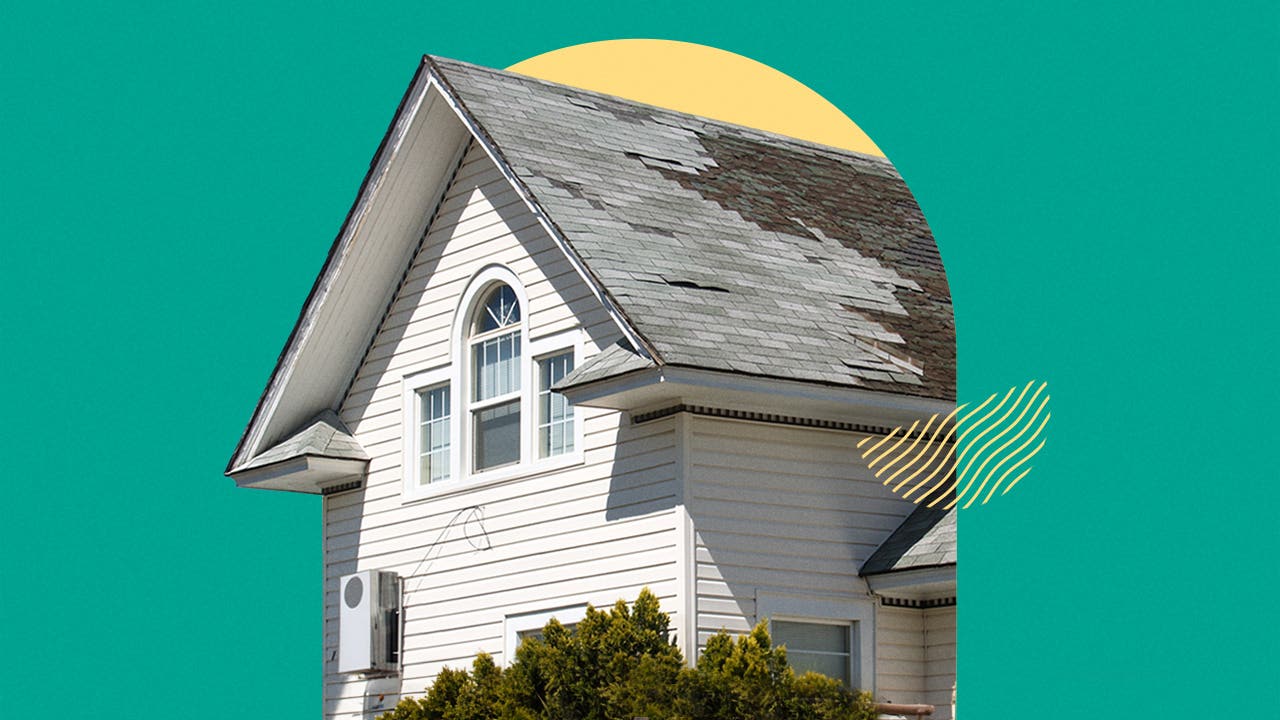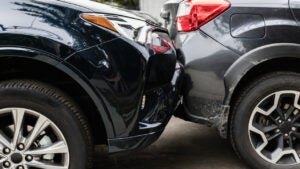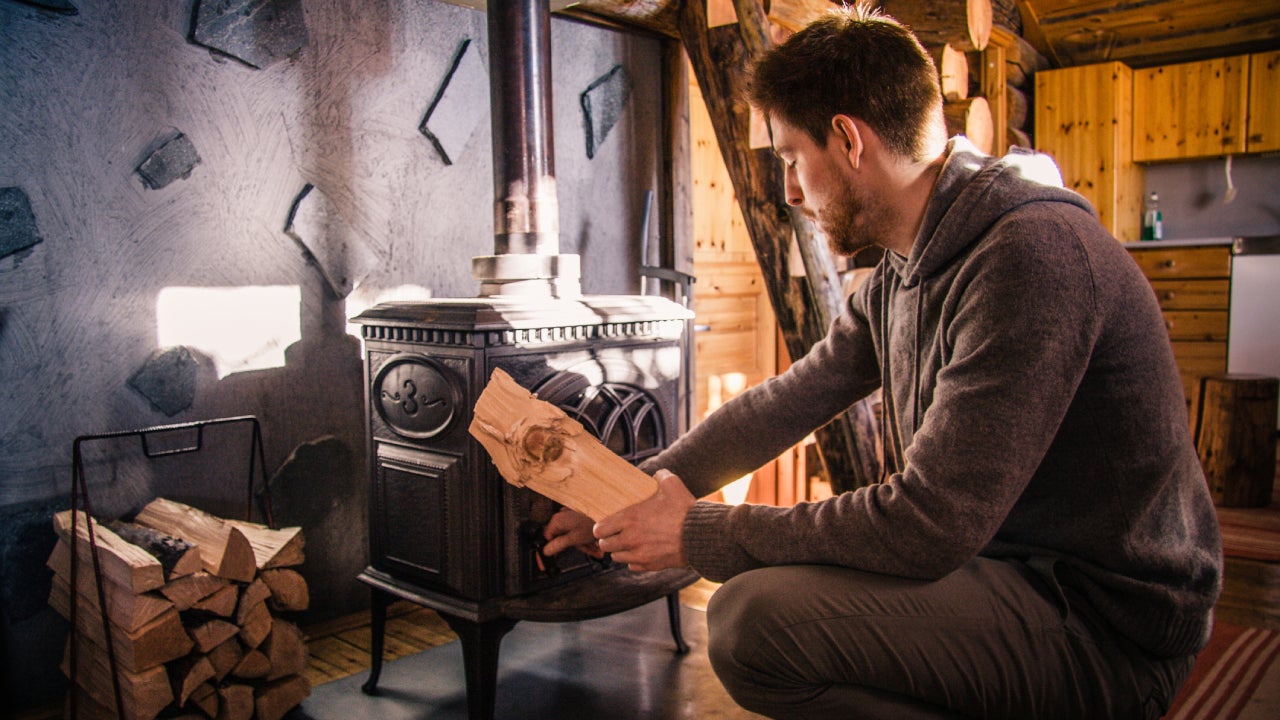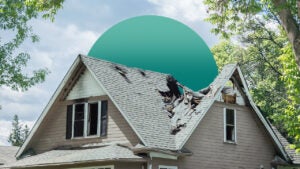What does homeowners insurance cover?

Key takeaways
- Most mortgage lenders require homeowners to purchase home insurance.
- Standard HO-3 home insurance policies cover damage to your home’s structure, other structures on your property and your personal belongings, as well your liability as a homeowner and the cost for things like food and a hotel if you are displaced after a covered loss.
- Home insurance policies cover you for a range of potential losses, but some significant causes of damage—such as earthquakes and flooding—are excluded from standard policies.
Your home insurance policy provides financial protection for your home’s physical structure, the other structures on your property, your personal belongings and a level of liability insurance. Together, these coverage types work together to keep your hard-earned money safe if you have unexpected damage to your home. Although it can help with a lot of things, home insurance doesn’t cover everything. Depending on where you live and how much stuff you have, you might consider building out your policy with endorsements, or add-ons. Knowing what homeowners insurance does and does not cover could help you buy the right policy the first time around.
What does home insurance cover?
A standard home insurance policy, or HO-3 policy, typically offers six coverage types:
- Your home’s physical structure (dwelling coverage)
- Other, detached structures on your property
- Your personal belongings
- Liability protection
- Guest medical payments
- Additional living expenses (loss of use)
The unexpected things that cause damage to your home and property are called perils. Your dwelling and other structures’ coverage include ‘open perils’ or ‘all risk’ coverage. Open perils insurance provides coverage for any disaster that is not specifically excluded in your policy. Your belongings, on the other hand, usually fall under what’s known as ‘named perils.’ That means that only the losses that are named in that portion of your policy are covered.
Additional types of coverage, known as endorsements, or add-ons, are also available from some carriers and may include coverage options like scheduled personal property (for expensive items) and sewer backup. Some types of coverage, like flood coverage, are rarely available as a policy add-on and must usually be purchased as a separate policy altogether. We’ll cover more on that later. First, let’s dive into what each of the standard six coverage types mean.
Dwelling coverage (Coverage A)
Your homeowners policy is designed to pay to rebuild or repair your home in the case of damage caused by things like fire, wind, hail and lightning. Dwelling coverage includes the main structure of your home and any attached structures, such as a deck or attached garage, but not any other detached structures on the same premises.
It’s important to note that, in a standard policy, a dwelling coverage claim is typically designated to be paid out as replacement cost, which means that no depreciation is factored into what the insurance company pays to make the repairs or replacements.
Your dwelling coverage limit is one of the most important parts of your home insurance policy. Some of your other policy limits, like the ones for other structures, personal property and additional living expenses, are calculated as percentages of your dwelling limit.
Other structures coverage (Coverage B)
When you have detached structures on your property, other structures coverage is designed to financially protect them. These other structures can include detached garages, sheds, barns, gazebos and fences. Other structures coverage is also typically designed to be paid out at replacement cost. The policy limit for other structures is usually 10 percent of your dwelling limit: If you have a policy with a $300,000 dwelling limit, you likely have $30,000 for the other detached structures on your property.
Personal property coverage (Coverage C)
Coverage for your personal belongings will pay for the value of your damaged or lost possessions, including furniture, electronics, clothing and collectibles. Even trees, plants and shrubs are covered in some cases. Coverage for personal items may also include items that are stored off-premises, usually up to 10 percent of your Coverage C limit.
If you are unsure about how much coverage you need, you can conduct a home inventory to determine the right home insurance coverage plan for you. Most policies set the Coverage C limit between 50 and 70 percent of the Coverage A limit. So, if you have a $300,000 dwelling policy, you likely have between $150,000 to $210,000 for your personal belongings.
Your personal property coverage in a standard policy is often designated to be paid out as actual cash value, which means that your insurance company would only pay for what the original item would be worth today at depreciated values. Replacement cost for your belongings is often available as an endorsement, but is likely to increase your premium.
Additional living expenses (ALE) (Coverage D)
If damage makes your home uninhabitable after a covered claim, this coverage pays for the additional costs of living somewhere else while your home is repaired or rebuilt. This could include hotel and restaurant expenses, laundromat fees, pet boarding and other costs you may incur during that time. This coverage does have financial limits, and in some cases, a time limit as well. Your Coverage D limit is usually between 20 and 30 percent of Coverage A.
Liability coverage (Coverage E)
Liability insurance covers you from financial losses resulting from damage to others’ property and personal injury to others if you are found legally responsible. Unless they are excluded, this insurance also covers damage caused by your family members and even your pets. Liability insurance covers court awards and expenses, depending on your policy. Exact limits vary, but anywhere from $100,000 to $500,000 is considered standard.
If you think you need more liability insurance than the average homeowners policy offers, consider an umbrella liability policy, which provides broader coverage and higher liability limits.
Guest medical payments (Coverage F)
If a visitor to your home injures themselves, this type of coverage would pay to cover some of their medical expenses, such as ambulance fees, hospital stays and more. The amount varies by home insurance company, so it’s important to review the coverage limit to see if you want to make any adjustments, but between $1,000 and $5,000 is normal. Guest medical payments coverage differs from liability coverage in that it can pay out regardless of who is found legally responsible for the injury.
Surprising things included with your home insurance policy
In addition to your core coverage types, most home insurance policies include a few additional coverage types at no extra cost to you. The limits may be different for your policy, but they usually include:
| Coverage name | What it covers | Coverage limit |
|---|---|---|
| Debris removal | Helps with the cost of removing debris if caused by a covered peril. | Up to $1,000 for tree debris removal per occurrence and $500 per tree |
| Reasonable repairs | Helps with repair costs incurred by the policyholder to prevent further loss, like a tarp or boards to cover a broken window | Depends on policy |
| Tree, shrubs and other plants | Helps with the costs of replacing trees, shrubs and plants if they are damaged by a covered loss like fire or vandalism | 5% of total dwelling limit; up to $500 per plant |
| Fire department service charge | No-deductible coverage for fire department service charges | Up to $500 |
| Property removed | Financial protection for property that’s been removed from your home because a covered peril, like if your furniture is in storage after a home fire | Same as Coverage C limit |
| Credit card or electronic fund transfer card or access device | Helps if someone steals your credit card or forges a check, with no deductible | Up to $500 |
| Loss assessment | Helps with the policyholder’s share of loss assessment for shared community structures, usually for condo owners or those in an HOA | Up to $1,000 |
| Glass or safety glazing material | Helps with the cost of repairing windows and storm doors | $100 limit for HO-8 policies |
| Grave markers | Helps with damage to grave markers and mausoleums from a covered peril | Up to $5,000 |
What is not covered by home insurance?
Certain types of damage are typically not covered by home insurance. There are some crucial exclusions to note under homeowners insurance that will help you decide whether additional coverage is necessary. Some of these types of damages can be covered by purchasing an endorsement, or add-on, to your policy, while others will require an entirely separate insurance policy.
Keep in mind: If you live in an area that is prone to disasters, like hurricanes or earthquakes, it’s important to choose coverage that will provide the best financial protection for damage to your home and personal belongings. Consulting a licensed insurance professional can help you determine if your home insurance policy meets your coverage needs.
Flood damage
Damage from floods is not covered by your standard home insurance policy. You may be required by your lender to purchase flood insurance if your home is located in or near a flood zone. But flooding can (and does) happen anywhere. Given how expensive water damage from even a small flood can be to repair, you may want to consider purchasing flood coverage even if you aren’t in a high-risk zone or required to do so.
Most flood insurance in the U.S. is purchased through the National Flood Insurance Program (NFIP), which works with private insurers to offer coverage for those in regions that may experience flooding. One helpful resource for flood information is FEMA’s Flood Map Service Center, which shows if your home is in a flood zone based on your address. Note, however, that even if you are not in a flood zone, you could still be at risk. Just one inch of water can cause $25,000 in damage to your home.
Flood insurance premiums are typically paid in full up front, so if you need flood insurance, you might want to budget for that in advance if possible. Additionally, there is typically a 30-day waiting period before flood coverage goes into effect, so purchasing a policy when a major storm is already on the way won’t help.
Earthquake damage
Generally, damage caused by earthquakes is not covered by a standard homeowners policy, but can be purchased as a separate policy — or as an endorsement in some cases. An earthquake insurance policy is typically optional but may be something to consider if you live near an active fault line.
Water damage
While a standard home insurance policy covers some types of water damage, such as if your refrigerator leaks and it wasn’t caused by neglect, many instances are excluded. Water damage issues involving your sewage systems, such as an overflow or backup, are typically not covered, but that type of coverage can be purchased as an endorsement. And of course, damage from flooding caused by storms needs to be purchased as a separate policy.
Homeowners neglect
Proper care and routine maintenance are crucial to keeping your property in tip-top shape. Staying current on cleanings, home systems repairs and inspections can save you from a financial headache down the road. Any damages caused by neglect or failure to properly maintain your home are not covered by homeowners insurance.
Those damages include but are not limited to:
- Termites and insect damage
- Mold
- Rust
- Bird or rodent damage
- General wear and tear
To avoid costly repairs that your policy might not cover, it’s a good idea to maintain your home regularly.
Identity theft
Homeowners insurance typically does not cover expenses related to identity theft, but many carriers offer identity theft coverage as a home insurance endorsement. Some insurers automatically include this coverage on standard home insurance policies. This coverage typically helps pay for identity restoration services and may reimburse you for fraudulent charges.
Choosing the right homeowners insurance coverage
When choosing the right homeowners insurance company, the cost of coverage is just one factor. Each person has different criteria they want their insurance company to meet, whether it’s 24/7 claims response, online and mobile accessibility or the ability to speak with a dedicated agent who recognizes their name each time they call.
If you have unique coverage needs or home characteristics, such as living in a historic home, consider a company that offers special endorsements that fit your needs. Knowing how to choose the best home insurance company for you will help ensure you’re financially protected if a loss occurs.
Learn more: Affordable home insurance companies
How much does homeowners insurance cost?
In the U.S., the average cost for homeowners insurance is $2,397 per year for a home insurance policy with $300,000 in dwelling coverage, according to August 2025 data analyzed from Quadrant Information Services. Depending on your location, average premiums can range from $800 to almost $6,000 per year.
Some of the factors that may impact the cost of your policy include your ZIP code, the age of the home, the size of the home, your insurance claim history and the insurance company that underwrites your policy.
Note that adding additional coverage through separate policies or endorsements, like flood insurance or earthquake insurance, will affect your premium. If you need to purchase additional policies or supplemental coverage beyond what’s typically included in a basic home insurance policy, your home insurance costs will increase. Flood or earthquake insurance may be required in some areas.
To find the most affordable home insurance policy, it’s a good idea to shop around and get quotes from a few different insurers. You might want to think about getting new quotes every year or after a major event, like getting married or making renovations, and not just when you move.
Frequently asked questions
Why we ask for feedback Your feedback helps us improve our content and services. It takes less than a minute to complete.
Your responses are anonymous and will only be used for improving our website.
You may also like


Does homeowners insurance cover wood stoves?

Homeowners insurance exclusions

What is homeowners insurance and how does it work?


